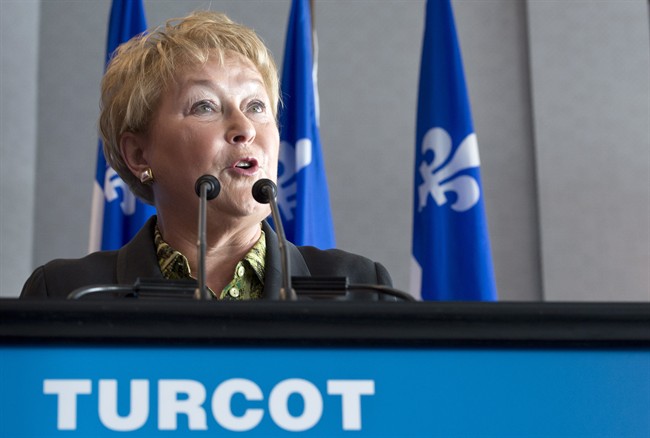MONTREAL – Fix potholes first, ask questions later.

That’s the message from the Quebec government to the city of Montreal as it deals with a dilemma about whether to award a pothole-fixing contract to companies embroiled in corruption scandals.
Last week, Montreal’s mayor launched an online poll asking residents to help resolve the following dilemma: would they rather live with more potholes for a while, or swiftly award a street-repair contract to a consortium that includes several firms accused of breaking the law?
Mayor Michael Applebaum is asking Montrealers to choose between hiring those firms or being jolted out of their seats while driving along pothole-laden streets, because the current contract expires in mid-April.
Jean-Francois Lisee, the Parti Quebecois minister responsible for Montreal, says there’s one overriding concern and that’s the safety of Quebecers.
“There’s nothing … that impedes the city from hiring these firms,” he said on Monday.
“If they, down the road, are accused of wrongdoing and are convicted they’ll go to jail,” Lisee said. “But let’s not have all our cars and buses wrecked because we don’t want to be in a difficult political fix.”

Get breaking National news
Ongoing corruption scandals in Quebec are now entering a new phase — with questions about how to get construction projects going, without rewarding companies that pilfered the public purse.
- Jasper mayor says CN Rail relocation will be devastating: ‘Deeply disappointed’
- Retired Quebec teacher buys winning lottery ticket at last minute, wins $40M
- N.B. election: Higgs went to ‘very dark place’ with Liberal joke, opponent says
- GM, Volvo, Land Rover vehicles among those in big recall. What to know
Bill 1 is Quebec’s anti-corruption legislation which calls on the province’s securities regulator, the AMF, to vet companies vying for any provincial and municipal contracts.
Lisee made his comments to reporters after a news conference where Premier Pauline Marois sought to underscore her government’s tougher approach to the awarding of contracts.
Marois said companies wanting to get involved in a consortium to rebuild a decaying downtown Montreal interchange will need to have a clean record.
The premier said managers, shareholders and owners of construction companies thinking of submitting tenders for the reconstruction of the Turcot interchange will be closely scrutinized.
“We are going to be more demanding in matters of integrity, of transparency in the management of contracts,” she said Monday.
The Quebec premier said the AMF (Autorite des marches financiers) will also review firms that submit proposals to make sure they haven’t violated any laws.
It would be up to a consortium to correct any problems, such as replacing a business that has been involved in collusion or other illegal activities.
“People should not have committed infractions such as tax evasion and, among other things, should not have been accused of collusion or illegal acts,” Marois said.
“If one of the companies does not meet the criteria of the AMF … the consortium could replace that partner or the partner could take action to correct the situation.”
She described the Turcot interchange reconstruction as the biggest road project ever to be undertaken in Quebec.
It will create 13,000 direct jobs and 8,000 indirect jobs.
The original cost to rebuild the interchange, a main entry point into downtown Montreal from the west, was $1.5 billion but it has been gradually rising.
Marois announced that the final price tag of the mega-project will have a ceiling of $3.7 billion — and that it will be delayed several years, with construction to be completed by 2020.
Marois accused her predecessors, the Liberals, of lowballing the early estimates for infrastructure projects and pushing them through.
“We are presenting the best conceivable solution, considering the project we inherited from the previous government,” she said.
The interchange, which is used by 300,000 vehicles daily, has had to have emergency repairs to make it safe for motorists.
Several lanes have even been closed to traffic because some of the support structure was deemed unsafe.





Comments